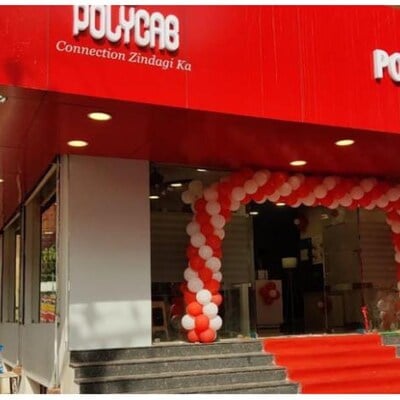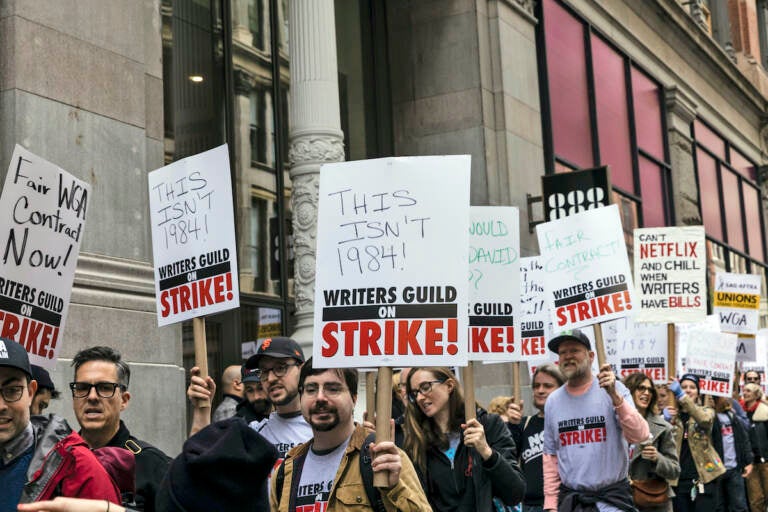The Impact Of Zombie Buildings On Chicago's Office Real Estate Market

Table of Contents
Defining "Zombie Buildings" in the Chicago Context
A "zombie building" in Chicago is typically a commercial property, often an office building, caught in a legal quagmire. It's not simply a vacant building; it's a property trapped in a state of limbo, often due to foreclosure complications, ownership disputes, or complex tax liens. This distinguishes it from merely vacant buildings, which may be temporarily unoccupied but are still under active ownership and management. These legal complexities prevent necessary repairs, leading to disrepair and deterioration. The result is a blighted property that negatively impacts the surrounding area.
- Definition of zombie building: A property in a state of advanced disrepair due to protracted legal battles over ownership or foreclosure, hindering its redevelopment or sale.
- Legal complexities: Foreclosure issues, title disputes, back taxes, and liens can trap properties in legal limbo for years, preventing necessary maintenance and renovations.
- Examples: [Insert examples of notable zombie buildings in specific Chicago neighborhoods, including addresses if publicly available and relevant. Include hyperlinks to news articles or official records where possible].
Economic Consequences of Zombie Buildings on Chicago's Office Market
The economic consequences of zombie buildings in Chicago are substantial and far-reaching. These blighted properties exert a negative influence on the entire office real estate market:
- Decreased property values: Nearby properties experience a decline in value due to the visual blight and perceived increased risk associated with zombie buildings. This creates a ripple effect throughout the neighborhood, impacting both residential and commercial properties.
- Lost tax revenue: Zombie buildings generate little to no property tax revenue for the city, creating a financial burden on local governments. This lost revenue could be used for crucial city services and infrastructure improvements.
- Deterred investment and development: The presence of zombie buildings can dissuade potential investors and developers from committing to projects in the affected areas, hindering economic growth and job creation. This directly affects the availability of desirable office space Chicago.
- Increased crime rates: Abandoned and neglected buildings often attract criminal activity, leading to increased safety concerns and further depressing property values. This creates a vicious cycle, reinforcing the negative impact of these blighted properties.
Social Impacts of Zombie Buildings in Chicago Neighborhoods
Beyond the economic implications, zombie buildings inflict significant social harm on Chicago neighborhoods:
- Visual blight: The deterioration and neglect associated with zombie buildings detract from the aesthetic appeal of the neighborhood, diminishing quality of life for residents and potentially impacting businesses.
- Safety concerns: These buildings often become havens for illicit activities, jeopardizing the safety and well-being of residents and negatively affecting the sense of community security.
- Social consequences for residents: Decreased property values directly impact homeowners and renters, potentially leading to displacement and eroding community stability. The overall decline in the neighborhood's vibrancy further negatively impacts residents.
Potential Solutions and Strategies to Address the Issue of Zombie Buildings in Chicago
Addressing the issue of zombie buildings requires a multi-pronged approach involving government intervention, private sector participation, and community engagement:
- Government incentives: Tax incentives, expedited permitting processes, and grants for redevelopment can encourage private investment in the rehabilitation of zombie buildings. This includes tax abatements for converting vacant office space Chicago into other uses.
- Public-private partnerships: Collaborative efforts between the city and private developers can leverage resources and expertise to tackle the problem more efficiently.
- Strengthening ordinances and regulations: Enacting stricter regulations on property maintenance and addressing loopholes in foreclosure laws can help prevent the creation of future zombie buildings. This includes proactively addressing issues of blighted properties Chicago.
- Community involvement: Engaging local communities in identifying and addressing zombie buildings fosters a sense of ownership and promotes collaborative solutions.
Conclusion
Zombie buildings pose a significant threat to Chicago's office real estate market, resulting in substantial economic losses and negative social impacts. Their prolonged existence stems from complex legal issues and a lack of coordinated action. Addressing this problem requires a concerted effort from the city government, private investors, and the community. By implementing the strategies discussed above, Chicago can begin to reclaim these blighted properties and revitalize its neighborhoods. Learn more about the issue by exploring resources from the City of Chicago’s Department of Buildings and other relevant real estate organizations. Let's work together to prevent the further spread of zombie buildings and foster a thriving, vibrant Chicago office market. The future of vacant office space Chicago, and indeed the city's commercial real estate prospects, depends on it.

Featured Posts
-
 Reliance Stock Soars 10 Month High On Positive Earnings
Apr 29, 2025
Reliance Stock Soars 10 Month High On Positive Earnings
Apr 29, 2025 -
 Double Trouble In Hollywood Writers And Actors Strike Cripples Industry
Apr 29, 2025
Double Trouble In Hollywood Writers And Actors Strike Cripples Industry
Apr 29, 2025 -
 North Korea Confirms Troop Deployment To Russia In Ukraine First Official Admission
Apr 29, 2025
North Korea Confirms Troop Deployment To Russia In Ukraine First Official Admission
Apr 29, 2025 -
 Macario Martinezs Transformative Journey A National Sensation
Apr 29, 2025
Macario Martinezs Transformative Journey A National Sensation
Apr 29, 2025 -
 Are Stretched Stock Market Valuations Justified Bof A Weighs In
Apr 29, 2025
Are Stretched Stock Market Valuations Justified Bof A Weighs In
Apr 29, 2025
Latest Posts
-
 Oh What A Beautiful World A Review Of Willie Nelsons New Album
Apr 29, 2025
Oh What A Beautiful World A Review Of Willie Nelsons New Album
Apr 29, 2025 -
 Country Legend Willie Nelson Releases Oh What A Beautiful World
Apr 29, 2025
Country Legend Willie Nelson Releases Oh What A Beautiful World
Apr 29, 2025 -
 New Music Willie Nelson Releases 77th Solo Album At 91
Apr 29, 2025
New Music Willie Nelson Releases 77th Solo Album At 91
Apr 29, 2025 -
 New Music Willie Nelsons Oh What A Beautiful World
Apr 29, 2025
New Music Willie Nelsons Oh What A Beautiful World
Apr 29, 2025 -
 Oh What A Beautiful World Willie Nelsons Latest Album Details
Apr 29, 2025
Oh What A Beautiful World Willie Nelsons Latest Album Details
Apr 29, 2025
